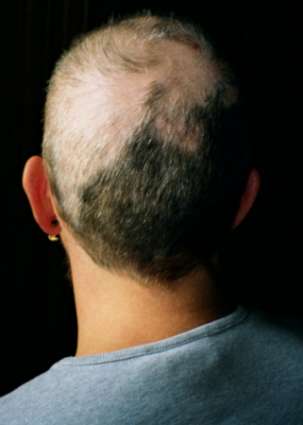What is Trichotillomania? Who Does It Affect?
 Trichotillomania is an obsessive-compulsive disorder (OCD). It refers to the repetitive and irresistible pulling of hair. A person suffering from trichotillomania may pull hair from the scalp, face, or pubic areas, leading to severe hair loss. Trichotillomania can affect anyone but occurs most often in women from age 13 well into adulthood.
Trichotillomania is an obsessive-compulsive disorder (OCD). It refers to the repetitive and irresistible pulling of hair. A person suffering from trichotillomania may pull hair from the scalp, face, or pubic areas, leading to severe hair loss. Trichotillomania can affect anyone but occurs most often in women from age 13 well into adulthood.
The disorder is one of the most common body-focused repetitive behaviors. Studies also show that it is more prevalent in young adults and teenagers.
What are the Causes of Trichotillomania?
We do not know the exact causes of trichotillomania. However, studies suggest that some genetic and environmental factors contribute to its occurrence. These factors include anxiety or stress. When under pressure or in uncomfortable situations, a person’s way of coping could be the pulling of hair. Scientists also link it to a chemical imbalance in the brain as with other OCDs. The change of hormonal levels during puberty may also cause trichotillomania.
Trichotillomania Symptoms
Bald patches can be a sign that one is suffering from the disorder. These patches may be irregular and may be more on one side than the others. However, not all patches result from it; they may result from an unrelated skin infection.
Another sign may be failing to stop pulling your hair even when trying to. Most people with trichotillomania also play or chew the pulled-out hair.
Treatment Options for Trichotillomania
The disorder is manageable through therapies and the use of some medications. Over time, the patient will stop pulling their hair or, at the very least, reduce it.
There are three forms of therapies. These are habit reversal training, acceptance and commitment therapy, and cognitive therapy. Habit reversal training enables you to increase your awareness of the disorder’s triggers. It also teaches you to replace hair pulling with another action that is not harmful. This is the primary treatment for trichotillomania. Acceptance and commitment therapy enables you to recognize your urges without acting upon them. Cognitive therapy helps you change how you perceive things and how you let them affect you.
Some medications, such as N-acetylcysteine, may lessen the symptoms of trichotillomania. Antidepressants can also do the same. However, these medications are not effective treatment options for the disorder.
Trichotillomania: Leading a Normal Life
While the disorder affects approximately 3.5 percent of the US population, its awareness is lacking. You can preach awareness and openness. Awareness to help reduce stigma and enhance diagnosis and treatment–openness to ease the sharing of experiences. Hiding of the condition may make the anxiety worse. Worthy to note, hair pulling is not self-harm. It is a self-soothing action.
If you are experiencing the devastating effects of hair loss and would like to learn more about the different hair restoration and hair replacement options available to men and women in Tupelo, Mississippi, please contact us to schedule a private, no-obligation consultation.
- Digital Detox for Your Mind & Scalp: Reclaiming Wellness from Inside Out - December 14, 2024
- October: Breast Cancer Awareness Month - October 3, 2024
- Effects of Chlorine on Thinning Hair - June 2, 2024




